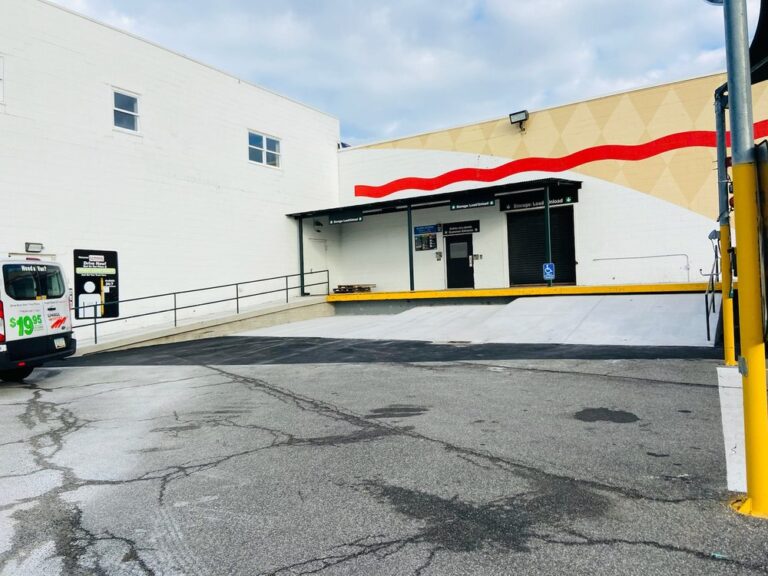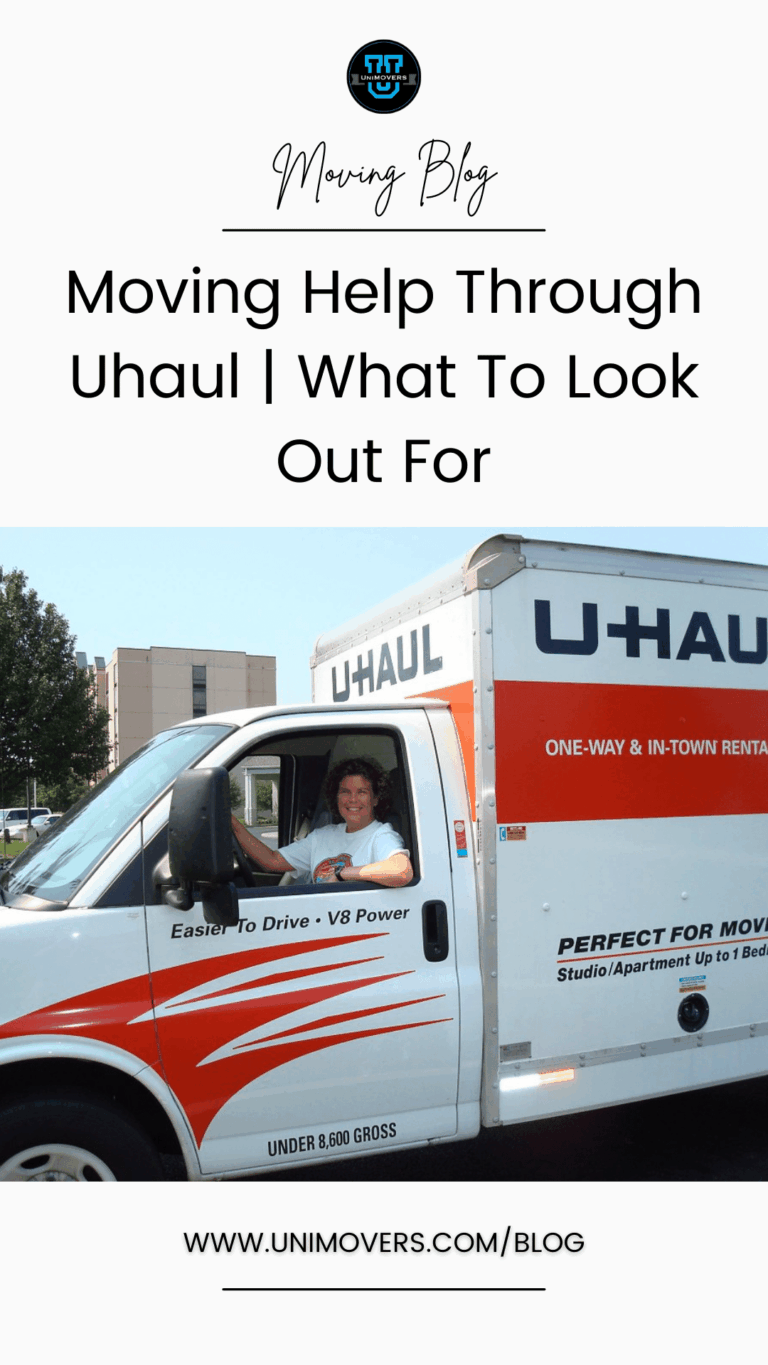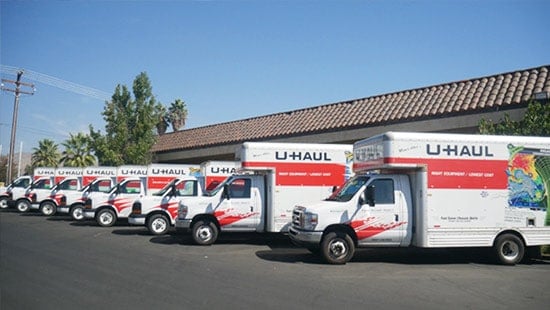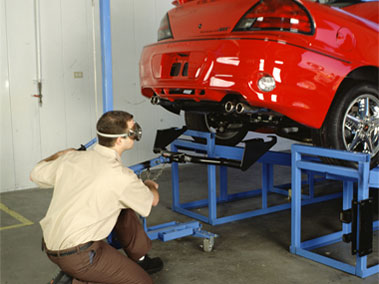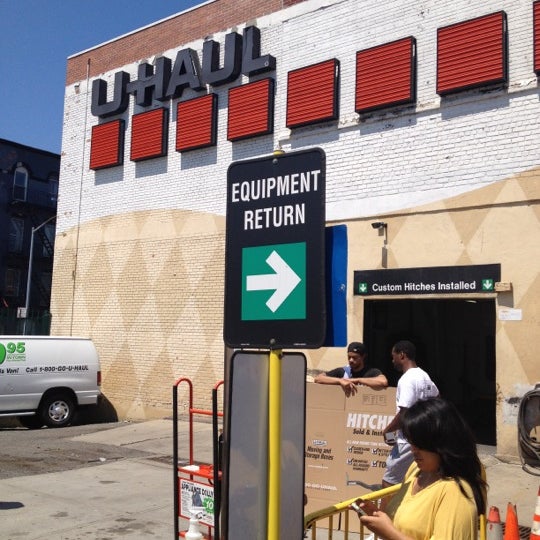U-Haul Insurance: Your Essential Guide to Protecting Your Move

U-Haul Insurance: Your Essential Guide to Protecting Your Move
Moving is undeniably one of life’s most stressful events. From packing countless boxes to coordinating logistics, there’s a lot to manage. Amidst this flurry of activity, one crucial aspect often gets overlooked or misunderstood: U-Haul insurance. While U-Haul doesn’t offer traditional "insurance" in the same way an independent insurer does, they provide a range of "protection plans" designed to safeguard your rental equipment, your belongings, and even yourself during your move. Understanding these options is paramount, as declining them can leave you vulnerable to significant financial risk in the event of an accident or unforeseen damage. This comprehensive guide will demystify U-Haul’s protection plans, helping you make an informed decision for a smoother, more secure moving experience.
Understanding U-Haul’s Protection Plans: Beyond Traditional Insurance
Before diving into the specifics, it’s vital to clarify that U-Haul’s offerings are not typical third-party insurance policies. Instead, they are proprietary "protection plans" or "damage waivers" sold directly by U-Haul. These plans, primarily branded as Safemove® and Safetrip®, are designed to limit your financial liability for damages that may occur to the U-Haul equipment, your cargo, or even provide medical coverage during your rental period.
Many renters mistakenly believe their personal auto insurance, homeowners insurance, or even credit card coverage will automatically extend to a U-Haul truck or trailer. However, this is rarely the case. Personal auto policies often have exclusions for rental trucks of a certain size or weight, or for vehicles used for "commercial" purposes (even if you’re just moving your own household goods). Similarly, credit card rental car benefits typically apply only to passenger cars, not large moving trucks. Homeowners or renters insurance might cover your belongings in transit, but usually only against specific perils and with deductibles that could make small claims impractical. This gap in coverage is precisely why U-Haul’s protection plans become so relevant and important.
The Core U-Haul Protection Plans: Safemove® and Safetrip®
U-Haul offers distinct protection plans tailored to different aspects of your rental.
Safemove® (for Trucks & Trailers)
Safemove® is the primary protection package for U-Haul trucks and trailers. It typically includes several key components:
-
Damage Waiver (DW): This is perhaps the most critical component. The Damage Waiver relieves you of financial responsibility for most accidental damage to the U-Haul rental truck or trailer. Without it, you are 100% liable for the full cost of repairs or replacement of the equipment, regardless of fault. This can easily run into thousands of dollars for even minor incidents. Importantly, the Damage Waiver usually has no deductible, meaning U-Haul covers the damage fully within the terms of the agreement.
-
Cargo Protection (CP): This plan covers damage to your personal belongings inside the U-Haul truck or trailer. It typically protects against specified perils such as fire, collision, or overturn of the rental equipment. Cargo Protection usually has a set maximum coverage amount (e.g., $15,000 or $25,000) and may have a deductible. It’s crucial to understand what specific perils are covered and what the limitations are.
-
Medical & Life Protection (MLP): This component offers limited medical coverage for the renter and passengers in the U-Haul truck’s cab, as well as a specified death benefit. It’s designed to provide some immediate financial relief in case of injury or fatality during the rental period.
For more comprehensive coverage, U-Haul often offers Safemove Plus®. This package typically bundles the Damage Waiver, Cargo Protection (often with higher limits), and Medical & Life Protection, and frequently includes Roadside Assistance. Roadside assistance can be a lifesaver, covering flat tires, lockouts, jump-starts, and other common mechanical issues, preventing costly delays and service calls.
Safetrip® (for Towing Vehicles)
Safetrip® is a specialized protection plan designed for customers using U-Haul auto transports or tow dollies to move a personal vehicle.
-
Damage Waiver for Towed Vehicle: This component specifically covers accidental damage to the vehicle being towed on the U-Haul auto transport or tow dolly. Just like with the truck’s DW, without Safetrip®, you would be fully responsible for any damage to your own towed vehicle while it’s on U-Haul equipment.
-
Medical & Life Protection (MLP): Similar to Safemove®, Safetrip® also includes limited medical and life coverage for the driver and passengers in the towing vehicle.
Why Consider U-Haul Protection? Benefits and Risks
Deciding whether to purchase U-Haul’s protection plans boils down to a risk assessment.
Benefits of Purchasing Protection:
- Peace of Mind: Knowing you’re covered reduces stress during an already stressful move.
- Financial Protection: Avoid potentially devastating out-of-pocket costs for repairs to the U-Haul equipment or your own belongings.
- Coverage Gap Filler: Addresses the common lack of coverage from personal auto, homeowners, or credit card policies for large rental trucks.
- No Deductible on Equipment Damage (DW): Most Damage Waivers have no deductible, meaning U-Haul covers the full repair cost.
- Roadside Assistance: Safemove Plus often includes this invaluable service, saving you from being stranded.
- No Impact on Personal Insurance Premiums: Filing a claim under U-Haul’s protection plan won’t typically affect your personal auto insurance rates.
Risks of Declining Protection:
- Full Financial Liability: You are 100% responsible for all damage to the U-Haul equipment, regardless of fault. A minor fender bender could cost thousands.
- No Cargo Coverage: Your precious belongings could be destroyed in an accident with no recourse.
- No Medical Coverage: Injuries sustained during the move might not be adequately covered, leading to medical bills.
- High Out-of-Pocket Costs: Without protection, you could face significant financial hardship if an incident occurs.
Navigating Your Options: How to Choose the Right Plan
Choosing the right U-Haul protection plan involves a few key steps:
- Contact Your Personal Insurers FIRST: Before you even reserve your U-Haul, call your personal auto insurance provider and your homeowners or renters insurance provider. Ask them specifically if and how their policies cover large rental trucks or trailers, and your belongings in transit. Get the details in writing if possible.
- Assess Your Risk Tolerance: Are you comfortable with the potential financial burden of paying for significant damage out of pocket? If not, protection is a wise choice.
- Evaluate Your Cargo Value: If you’re moving expensive furniture, electronics, or irreplaceable sentimental items, cargo protection is highly recommended.
- Consider Your Driving Conditions: Are you driving a long distance? Through unfamiliar territory? In adverse weather? The higher the risk, the more important protection becomes.
- Understand Deductibles and Limits: Even with protection, there might be deductibles for cargo claims or limits on coverage amounts. Read the terms carefully.
- The "Safemove Plus" Advantage: For most renters, Safemove Plus offers the most comprehensive peace of mind, combining equipment protection, cargo coverage, medical benefits, and roadside assistance. It’s often the recommended choice for a full-service move.
Important Considerations and Practical Tips
- Pre-Inspection is Crucial: Before driving off, thoroughly inspect the U-Haul truck or trailer for any existing damage (dents, scratches, broken mirrors, tire condition). Document everything with photos and videos, and ensure it’s noted on your rental agreement. This protects you from being charged for pre-existing damage.
- Drive Defensively: U-Haul trucks handle very differently from passenger cars. They are heavier, longer, taller, and require wider turns and longer stopping distances. Be extra cautious, reduce speed, and allow ample following distance. Pay attention to overhead clearances.
- Load Properly: Distribute weight evenly, secure all items, and ensure nothing can shift during transit. Improper loading can lead to accidents and may void some protection coverage.
- Read the Rental Contract: Understand the terms and conditions, what is covered, and what is explicitly excluded (e.g., damage from negligence, off-road use, or driving under the influence will almost certainly not be covered).
- In Case of an Accident: If an incident occurs, prioritize safety. Call emergency services if needed, contact U-Haul immediately, and document the scene thoroughly with photos and witness information.
Challenges and Common Pitfalls
- Misunderstanding Coverage: The biggest pitfall is assuming existing personal insurance will cover a U-Haul rental. Always verify.
- Pressure at the Counter: Don’t feel pressured to make a quick decision. Take a moment to review the options and your personal situation.
- Not Documenting Damage: Failing to inspect and document pre-existing damage can lead to disputes and charges you don’t deserve.
- Exclusions: Be aware that no protection plan covers everything. Intentional damage, damage from prohibited activities (like off-roading), or damage resulting from gross negligence are typically excluded.
U-Haul Protection Plan Price Table (Estimated Daily Costs)
The cost of U-Haul protection plans varies significantly based on factors such as truck size, trailer type, rental duration, and your specific location. The table below provides estimated daily cost ranges for illustrative purposes. Always confirm current pricing directly with U-Haul for your specific rental.
| Protection Plan | Coverage Type | Key Benefits | Estimated Daily Cost Range* | Important Notes & Deductibles |
|---|---|---|---|---|
| Safemove® | Damage Waiver (DW) | Covers accidental damage to U-Haul truck/trailer. | $14 – $28 | No deductible on U-Haul equipment damage. Does NOT cover cargo or medical. |
| Cargo Protection (CP) | Damage to your belongings from specified perils (fire, collision, overturn). | (Often included in Safemove Plus) | Max value typically $15,000-$25,000. May have a deductible (e.g., $100). | |
| Medical & Life Protection (MLP) | Limited medical expenses for occupants; death benefit. | (Often included in Safemove Plus) | For occupants in the U-Haul cab. Limited coverage amounts. | |
| Safemove Plus® | DW + CP + MLP + Roadside Assistance | Most comprehensive plan: Covers U-Haul equipment, your cargo, medical, and roadside. | $24 – $48 | No deductible on U-Haul equipment. Cargo protection may have deductible. Higher cargo limits (e.g., $25,000-$30,000). |
| Safetrip® | Damage Waiver for Towed Vehicle + MLP | Covers accidental damage to your vehicle being towed on U-Haul equipment. | $8 – $16 | Also includes limited medical/life protection for driver/passengers of the towing vehicle. No deductible on towed vehicle damage. |
| No Protection | Full Personal Liability for all damages | You are solely responsible for all costs if anything goes wrong. | $0 | Highest risk option. Can lead to thousands in out-of-pocket expenses. |
Disclaimer: These prices are estimates and can vary significantly based on location, truck/trailer size, rental duration, and current promotions. Always consult U-Haul directly for precise pricing for your specific rental.
Frequently Asked Questions (FAQ)
Q1: Is U-Haul insurance (protection plan) mandatory?
A: No, purchasing U-Haul’s protection plans is optional. However, declining them means you assume full financial responsibility for any damage to the U-Haul equipment, your cargo, and potential medical costs.
Q2: Does my personal auto insurance cover U-Haul rental trucks?
A: In most cases, personal auto insurance policies do NOT cover large rental trucks due to size, weight, or commercial-use exclusions. Always contact your personal auto insurer directly to confirm your specific coverage before renting.
Q3: Does my credit card offer coverage for U-Haul rentals?
A: Credit card rental car benefits almost exclusively apply to standard passenger vehicles and typically exclude large moving trucks, cargo vans, or trailers. Do not rely on credit card coverage for U-Haul.
Q4: What’s the main difference between Safemove® and Safemove Plus®?
A: Safemove Plus® is a more comprehensive package. While Safemove® typically covers damage to the U-Haul equipment, Safemove Plus® usually adds Cargo Protection for your belongings, Medical & Life Protection, and often includes valuable Roadside Assistance.
Q5: What happens if I decline protection and damage the U-Haul truck?
A: If you decline protection and damage the U-Haul equipment, you are 100% financially liable for the full cost of repairs or replacement. This can amount to thousands of dollars out of your own pocket.
Q6: Does U-Haul protection cover damage to other vehicles or property?
A: U-Haul’s protection plans (Safemove, Safetrip) primarily cover damage to the U-Haul equipment itself, your cargo, and medical expenses for occupants. They do NOT typically cover damage to other vehicles or third-party property. Liability for such damages would fall under your personal auto insurance policy’s liability coverage (if it extends to the U-Haul) or U-Haul’s basic, state-mandated liability coverage.
Q7: What should I do if I’m involved in an accident with a U-Haul?
A: First, ensure everyone’s safety. If necessary, call emergency services. Then, contact the police to file a report. Immediately notify U-Haul of the incident. Document everything with photos and videos of the damage, the scene, and any involved parties.
Conclusion
Navigating a DIY move is challenging enough without the added worry of potential financial setbacks from an accident. U-Haul’s protection plans, while not traditional insurance, offer essential safeguards that can prevent a stressful move from becoming a financial disaster. By understanding the options available—from protecting the rental equipment itself to safeguarding your precious cargo and even providing medical coverage—you can make an informed decision that aligns with your risk tolerance and budget. Don’t let a misunderstanding about coverage leave you vulnerable. Invest a little time in understanding U-Haul’s protection plans; it’s a small step that can provide immense peace of mind and ensure your moving experience remains focused on new beginnings, not unexpected financial burdens.
